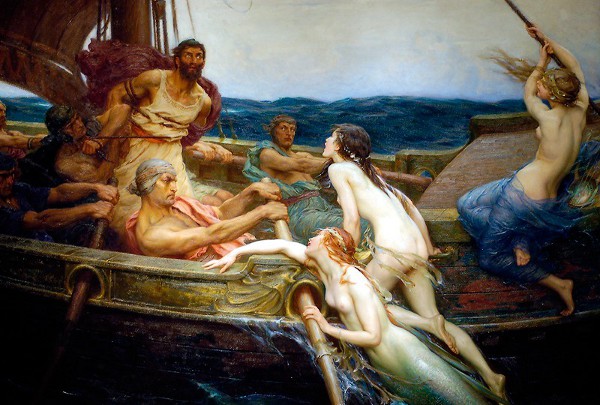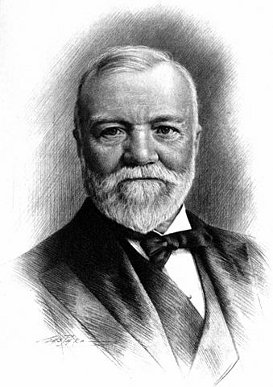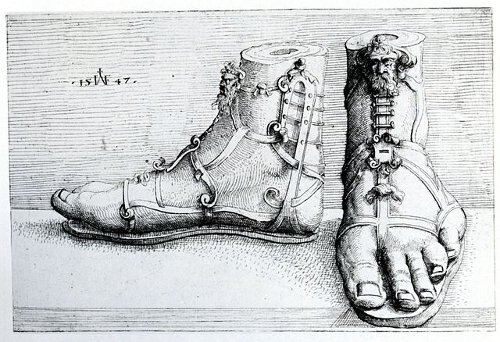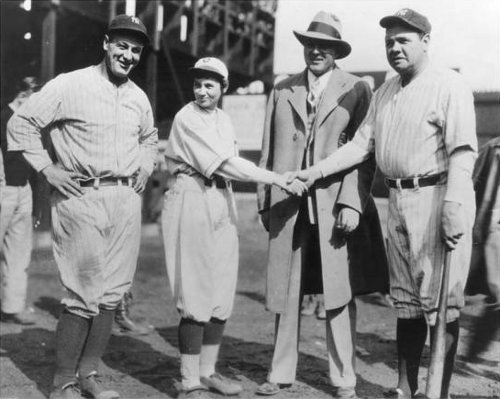jasonegghead
Shared posts
Report: Stating Current Year Still Leading Argument For Social Reform
Star Sand
Star Sand
If you made a beach using grains the proportionate size of the stars in the Milky Way, what would that beach look like?
Jeff Wartes
Sand is interesting.[Citation needed]
"Are there more grains of sand than stars in the sky?" is a popular question which has been tackled by many people. The upshot is that there are probably more stars in the visible universe than grains of sand on all of Earth's beaches.
When people do those calculations, they often dig up some good data on the number of stars, then do some hand-waving about sand grain size to come up with a number for the sand grains on Earth.[1]From a practical point of view, geology and soil science are more complicated than astrophysics. We're not going to tackle that issue today, but to answer Jeff's question, we do need to figure out what the deal with sand is.[2]"i like sand because i don't really know what it is and there's so many of it"
—@darth__mouth Specifically, we need to have some idea of what grain sizes correspond to clay, silt, fine sand, coarse sand, and gravel, so we can understand how our galaxy would look and feel if it were a beach.[3]Instead of just containing a bunch of them.
Fortunately, there's a wonderful chart by the US Geologic Survey that answers all these questions and more. For some reason, I find this chart very satisfying—it's like the erosion geology edition of the electromagnetic spectrum chart.
According to surveys of sand,[4]There are apparently lots of them. the grains found on beaches tend to run from 0.2mm to 0.5mm (with the finest layers on top). This corresponds to medium-to-coarse sand in the chart. The individual grains are about this big:

If we assume the Sun corresponds to a typical sand grain, then multiply by the number of stars in the galaxy, we come up with a large sandbox worth of sand.[5]I mean, you come up with a bunch of numbers, but imagination turns them into a sandbox.
However, this is wrong. The reason: Stars aren't all the same size.
There are a number of widely-circulated YouTube videos comparing star sizes. They do a good job of getting across just how staggeringly large some stars are. Although it's easy to get lost in the videos and lose track of scale, it's clear that some of the grains in our sandbox universe would be more like boulders.
Here's how the main-sequence[6]The stars in the main part of their fuel-burning lifecycle. star-sand grains look:

They mostly fall into the "sand" category, though the larger Daft Punk stars cross the line into "granules" or "small pebbles".
However, that's just the main sequence stars. Dying stars get much, much bigger.

When a star runs out of fuel, it expands into a red giant. Even ordinary stars can produce huge red giants, but when a star that's already massive enters this phase, it can become a true monster. These red supergiants are the largest stars in the universe.

These beachball-sized sand stars would be rare, but the grape-sized and baseball-sized red giants are relatively common. While they're not nearly as abundant as Sun-like stars or red dwarfs, their huge volume means that they'd constitute the bulk of our sand. We would have a large sandbox worth of grains ... along with a field of gravel that went on for miles.

The little sand patch would contain 99% of the pile's individual grains, but less than 1% of its total volume. Our Sun isn't a grain of sand on a soft galactic beach; instead, the Milky Way is a field of boulders with some sand in between.
But, as with the real Earth seashore, it's the rare little stretches of sand between the rocks where all the fun seems to happen.

The Ulysses Contract

In 1982, 24-year-old schizophrenic patient J.S. faced a difficult decision: The neuroleptic drug Prolixin relieved his psychotic symptoms, but it produced tardive dyskinesia, a progressive disorder that caused uncontrollable movements of his legs, arms, and tongue.
His therapist learned of an experimental program that might reduce this side effect, and J.S. signed consent forms to enter treatment. But the first step was to stop all medications, and without the Prolixin he descended again into psychosis and refused the experimental medication.
This produces an impossible dilemma: Does J.S.’ “sane” self have the right to overrule his “insane” self, if the two disagree? Can Dr. Jekyll bind Mr. Hyde? Such a directive is sometimes called a Ulysses contract, after the Greek hero who ordered his men to disregard his commands as they sailed past the sirens. If a patient directs his caregivers to ignore his own future requests, can the caregivers follow these orders?
In J.S.’ case, the answer was no. The research unit’s legal counsel decided that his earlier consent did not override his later refusal, and he was withdrawn from the program. When he resumed his antipsychotic medication and learned what had happened, he begged for another chance to try the experimental medication. Had they been wrong to refuse him?
(Morton E. Winston, Sally M. Winston, Paul S. Appelbaum, and Nancy K. Rhoden, “Can a Subject Consent to a ‘Ulysses Contract’?”, The Hastings Center Report, 12:4 [August 1982], 26-28)
Nation Terrified After Millions Lose Consciousness For 8 Whole Hours Last Night
Political Roundtable
‘It’s Not Too Late To Reverse The Alarming Trend Of Climate Change,’ Scientists Who Know It’s Too Late Announce
In a Word
jasoneggheadThe more you know, the more you know of those things you do not know.
philonoist
n. a lover of knowledge
inscient
n. ignorant; lacking knowledge
philalethist
n. a lover of the truth
“Have the courage to be ignorant of a great number of things, in order to avoid the calamity of being ignorant of everything.” — Sydney Smith
From a letter from Ben Franklin to John Lining of South Carolina, March 18, 1755:
I find a frank acknowledgment of one’s ignorance is not only the easiest way to get rid of a difficulty, but the likeliest way to obtain information, and therefore I practice it: I think it an honest policy. Those who affect to be thought to know every thing, and so undertake to explain every thing, often remain long ignorant of many things that others could and would instruct them in, if they appeared less conceited.
A Blind Pirate

Several years after publishing Treasure Island, Robert Louis Stevenson was abashed to discover that he had drawn much of the story from Washington Irving’s 1824 book Tales of a Traveller, which he had read many years earlier and forgotten.
“I believe plagiarism was rarely carried farther,” he wrote later. “The book flew up and struck me: Billy Bones, his chest, the company in the parlour, the whole inner spirit, and a good deal of the material detail of my first chapters — all were there, all were the property of Washington Irving. But I had no guess of it then as I sat writing by the fireside, in what seemed the spring-tides of a somewhat pedestrian inspiration; nor yet day by day, after lunch, as I read aloud my morning’s work to the family.”
This is an instance of cryptomnesia, the mistaking of a forgotten memory for an original idea. Stevenson charged himself with plagiarism, but he had honestly believed he was writing a new story: “It seemed to me original as sin; it seemed to belong to me like my right eye.” In reading Nietzsche’s Thus Spake Zarathustra, Carl Jung was surprised to discover “almost word for word” an incident reported in a ship’s log in 1686. Jung recognized the passage from a book published around 1835, about 50 years before Nietzsche was writing. He contacted the philosopher’s sister, who confirmed that the two of them had read the book when Nietzsche was 11 years old.
“I think, from the context, it is inconceivable that Nietzsche had any idea that he was plagiarizing this story,” Jung wrote. “I believe that fifty years later it had unexpectedly slipped into focus in his conscious mind.”
Four Things I've Learned From History, Or, Why Everyone Needs To Take A Deep Breath And Calm The Fuck Down
2. Every generation thinks the next generation is lazy/ignorant/immoral/disrespectful/possessing of inexplicable taste in music/going to run civilization into the ground. Spoiler: they won't. They'll grow out of being teenagers, have children, and think the exact same thing about them.
3. Every era thinks things are at the absolute worst they've ever been, surely portending some imminent crisis or catastrophe. This seems to come from a combination of lack of historical education, lack of perspective, and the need to sell newspapers. In reality, some things get better, some things get worse, many things stay the same, although we think and write about some of them differently. A lot more of all those things gets put on youtube.
4. The future is vastly, incomprehensibly, terrifyingly unpredictable.
Everything You Can Do with Adblock Plus (That Isn’t Just Blocking Ads)

Adblock Plus is one of the most robust browser extensions out there, and while its namesake is its most-used feature, it's not just about blocking ads. In fact, you can do all sorts of things with it, including cleaning up Facebook's interface and making sure web sites aren't tracking you.
Perspective

Suppose the Grand Canyon were man-made. It could have been formed (though it wasn’t) by agricultural or industrial erosion; the results of poor farming methods can look very similar — artificial badlands — if on a smaller scale. Would this hideous scar on the fair face of the earth still be a national park? Would anyone visit it other than groups of awed schoolchildren studying Environmental Destruction, absorbing the dreadful lesson of what can happen to a desert raped by human exploiters? Strip mining can produce spectacular and dramatic landscapes. W.H. Auden loved the lead-mining landscapes of Cornwall above all others; the evocative and aromatic hillsides of the Mediterranean, with their olives, sages, thyme, and dwarf conifers, are a result of centuries of deforestation, goat herding, and the building of roads and cities.
– Frederick Turner, “Cultivating the American Garden: Toward a Secular View of Nature,” Harper’s, August 1985
Required Reading
In 1990, Spanish philosopher Jon Perez Laraudogoitia submitted an article to Mind entitled “This Article Should Not Be Rejected by Mind.” In it, he argued:
- If statement 1 in this argument is trivially true, then this article should be accepted.
- If statement 1 were false, then its antecedent (“statement 1 in this argument is trivially true”) would be true, which means that statement 1 itself would be true, a contradiction. So statement 1 must be true.
- But that seems wrong, since Mind is a serious journal and shouldn’t publish trivial truths.
- That means statement 1 must be either false or a non-trivial truth. We know it can’t be false (#2), so it must be a non-trivial truth, and its antecedent (“statement 1 in this argument is trivially true”) is false.
- What then is the truth value of its consequent, “this article should be accepted”? If this were false then Mind shouldn’t publish the article; that can’t be right, since the article consists of a non-trivial truth and its justification.
- So the consequent must be true, and Mind should publish the article.
They published it. “This is, I believe, the first article in the whole history of philosophy the content of which is concerned exclusively with its own self, or, in other words, which is totally self-referential,” Laraudogoitia wrote. “The reason why it is published is because in it there is a proof that it should not be rejected and that is all.”
Some “Odd” Theorems

Draw any triangle and divide each leg into three equal segments. Connect each vertex to one of the trisection points on the opposite leg, as shown, and the triangle formed in the center will have 1/7 the area of the original triangle.

A square inscribed in a semicircle has 2/5 the area of a square inscribed in a circle of the same radius.

Draw a square and connect each vertex to the midpoint of an opposite side, as shown. The square formed in the center will have 1/5 the area of the original square.
A “proof without words”:

Soon, California kids will have the right to delete things they said online
We’ve all done or said stupid things online at some point or another. But if you’re a Californian under 18, you’ll soon have the right to delete those stupid things. California has put into place the first state law that requires companies, websites, and app developers to give kids under the age of 18 the option to delete a post.
The law (SB 568), which was signed by Governor Jerry Brown on Monday and takes effect on January 1, 2015, imposes onto Web companies and app makers this new requirement. Those firms now must:
Provide clear instructions to a minor who is a registered user of the operator’s Internet website, online service, online application, or mobile application on how the user may remove or, if the operator prefers, request and obtain the removal of content or information posted on the operator’s Internet Web site, online service, online application, or mobile application.
The law has received praise from its primary sponsor.
Read 10 remaining paragraphs | Comments
Facebook “Like” button just as protected as written speech, court rules
In a unanimous decision on Wednesday, the Fourth Circuit Court of Appeals reversed a lower court’s decision, declaring that a Facebook “Like” is protected under the First Amendment, like other forms of speech.
The Virginia case involves a former deputy sheriff in Hampton, Virginia, who claimed that he had been fired for “liking” his boss’ rival in a political campaign for county sheriff. In the original lawsuit, a federal district judge tossed the case, saying that a Facebook “Like” was “insufficient speech to merit constitutional protection.”
Facebook itself filed an amicus brief in the case, urging the appeals court to reconsider the lower court’s decision.
Read 2 remaining paragraphs | Comments
The Christmas Truce

As Christmas approached in 1914, a number of impromptu cease-fires broke out on the Western Front in which German and British troops exchanged greetings, song, and even food. Rifleman Oswald Tilley of the London Rifle Brigade wrote to his parents on Dec. 27 regarding an incident near Ploegsteert, just north of the Franco-Belgian border:
On Christmas morning as we had practically ceased to fire at them, one of them started beckoning to us so one of our Tommies went out in front of our trenches and met him halfway amidst cheering. After a bit a few of our chaps went out to meet theirs until literally hundreds of each side were out in No Man’s Land shaking hands and exchanging cigarettes, chocolate and tobacco etc. … Just you think that while you were eating your turkey etc. I was out talking and shaking hands with the very men I had been trying to kill a few hours before. It was astonishing!
In subsequent years the authorities tried to discourage such truces. Apart from reproving the breakdown in discipline, they had trouble getting the war started again. In late 1915 Ethel Cooper, an Australian woman living in Germany, met a soldier home on leave from the XIX Saxon Corps who told her that his unit had fraternized extensively with a British battalion for two days beginning that Christmas Eve. She wrote, “The trouble began on the 26th, when the order to fire was given, for the men struck. Herr Lange says that in the accumulated years he had never heard such language as the officers indulged in, while they stormed up and down, and got, as the only result, the answer: ‘We can’t — they are good fellows, and we can’t.’ Finally, the officers turned on the men, ‘Fire, or we do — and not at the enemy.’ Not a shot had come from the other side, but at last they fired, and an answering fire came back, but not a man fell. ‘We spent that day and the next day,’ said Herr Lange, ‘wasting ammunition in trying to shoot the stars down from the sky.’”
(From Marc Ferro et al., Meetings in No Man’s Land, 2007)
Junk Mail

After the San Francisco earthquake, James Jones wrote this letter on a detachable shirt collar and mailed it without postage to his son and daughter-in-law in New York:
Dear Wayland and Gussie: All safe but awfully scared. Frisco and hell went into partnership and hell came out winner — got away with the sack. Draw a line from Ft Mason along Van Ness Ave. to Market St., out Market to Dolores to Twentieth, thence to Harrison, 16th & Portrero Ave. R.R. Ave. to Channel St. and bay. Nearly everything east and north of this boundary line gone, and several blocks west of it, especially in Hayes Valley as far as Octavia St. from Golden Gate Ave. east. Fire is still burning on the northside but is checked in the Mission. I and a band of 40 or 50 volunteers formed a rope and bucket brigade, back-fired Dolores from Market to 19th, pulled down houses and blanketed westside Dolores and won a great victory. More with paper & stamps. James G. Jones. April 21st, 1906.
It was delivered. The post office had resolved to handle “everything, stamped or unstamped, as long as it had an address to which it could be sent,” remembered William F. Burke, secretary to the city postmaster. When he made the rounds of camps, “the wonderful mass of communications that poured into the automobile was a study in the sudden misery that had overtaken the city. Bits of cardboard, cuffs, pieces of wrapping paper, bits of newspapers with an address on the margin, pages of books and sticks of wood all served as a means to let somebody in the outside world know that friends were alive and in need among the ruins.”
At the close of the first day, “95 pouches of letters carrying mail composed of rags and tatters and odds and ends — and burdened with a weight of woe bigger than had ever left the city in a mail sack — were made up for dispatch. … It came to our knowledge later that not one piece of this mail that was properly addressed failed of delivery.”
Round and Round
Since demolishing 78 traffic signals and installing 80 roundabouts, the northern Indiana city of Carmel has reduced the number of accidents by 40 percent and the number of accidents with injuries by 78 percent.
“It’s nearly impossible to have a head-on or T-bone collision when using the roadways, and collisions that do happen tend to occur at much lower speeds,” noted Governing magazine. “Other benefits of roundabouts include reduced fuel consumption, due to a lack of idling, and a construction cost that is at least $150,000 less than installing traffic lights.”
“We have more than any other city in the U.S.,” says mayor James Brainard. “It’s a trend now in the United States. There are more and more roundabouts being built every day because of the expense saved and, more importantly, the safety.”
Green Peace

In December 1868, having just turned 33, Andrew Carnegie sat down in New York’s St. Nicholas Hotel and wrote a memo to himself. His net worth was $400,000, and with prudent management he could expect $50,000 in dividends each year for the rest of his life. “Beyond this never earn,” he resolved. “Make no effort to increase fortune, but spend the surplus each year for benevolent purposes. Cast aside business forever except for others.”
Man must have an idol — The amassing of wealth is one of the worst species of idolatry. No idol more debasing than the worship of money. Whatever I engage in I must push inordinately therefor should I be careful to choose that life which will be the most elevating in its character. To continue much longer overwhelmed by business cares and with most of my thoughts wholly upon the way to make more money in the shortest time, must degrade me beyond hope of permanent recovery.
He kept the memo for the rest of his life, and by the time of his death in 1919 he had given away $350,695,650, nearly $5 billion today, endowing universities, museums, libraries, and initiatives to support science, the arts, and world peace. “The man who dies rich, dies disgraced,” he wrote. “Money can only be the useful drudge of things immeasurably higher than itself. … Mine be it to have contributed to the enlightenment and the joys of the mind, to the things of the spirit, to all that tends to bring into the lives of the toilers of Pittsburgh sweetness and light. I hold this the noblest possible use of wealth.”
Open and Shut
In 1917 Ben Hecht and Maxwell Bodenheim agreed to debate one another before a Chicago literary society. They chose the topic “Resolved: That People Who Attend Literary Debates Are Imbeciles.”
Hecht took the podium, surveyed the crowd, and said, “The affirmative rests.”
Bodenheim rose and said, “You win.”
First bill banning “revenge porn” passes in California
The governor of California has signed Senate Bill 255, which will make the posting of "revenge porn" a crime.
Revenge porn made headlines this year; the success of Hunter Moore's IsAnybodyUp spawned even more tasteless sites like IsAnybodyDown, founded by Craig Brittain. That site, which has been taken down, ran on an extortion-like business model. Nude pictures were posted with identifying information, without the consent of the subjects. The only way to get the photos down was to make a payment, which was apparently going to the owner of the site, Craig Brittain—although Brittain denied that to the end.
In California, anyone distributing nude photos online with an "intent to harass or annoy" can now face six months in jail as well as a $1,000 fine. The bill was signed yesterday and goes into effect immediately.
Read 5 remaining paragraphs | Comments
NSA repeatedly tries to unpeel Tor anonymity and spy on users, memos show
The National Security Agency and its UK counterpart have made repeated and determined attempts to identify people using the Tor anonymity service, but the fundamental security remains intact, as top-secret documents published on Friday revealed.
The classified memos and training manuals—which were leaked by former NSA contractor Edward Snowden and reported by The Guardian, show that the NSA and the UK-based Government Communications Headquarters (GCHQ) are able to bypass Tor protections, but only against select targets and often with considerable effort. Indeed, one presentation slide grudgingly hailed Tor as "the king of high-secure, low-latency Internet anonymity." Another, titled "Tor Stinks," lamented: "We will never be able to de-anonymize all Tor users all the time."
An article published separately by The Washington Post also based on documents provided by Snowden concurred.
Read 12 remaining paragraphs | Comments
Digit Count

A letter from John Phillips of the Yale University School of Medicine to the New England Journal of Medicine, Feb. 14, 1991:
When referring to the hand, the names digitus pollicis, indicis, medius, annularis, and minimus specify the five fingers. In situations of clinical relevance the use of such names can preclude anatomical ambiguity. These time-tested terms have honored the fingers, but the toes have been labeled only by number, except of course the great toe, or hallux. Is it not time for the medical community to have the toes no longer stand up and merely be counted? I submit for consideration the following nomenclature to refer to the pedal digits: for the hallux, porcellus fori; for the second toe, p. domi; for the third toe, p. carnivorus; for the fourth toe, p. non voratus; and for the fifth toe, p. plorans domum.
Using porcellus as the diminutive form of porcus, or pig, one can translate the suggested terminology as follows: piglet at market, piglet at home, meat-eating piglet, piglet having not eaten, and piglet crying homeward, respectively.
(Thanks, Scott.)
A Day’s Work

On April 2, 1931, during an exhibition game between the minor-league Chattanooga Lookouts and the New York Yankees, 17-year-old pitcher Jackie Mitchell found herself facing Babe Ruth.
She struck him out in four pitches. “I had a drop pitch,” she said, “and when I was throwing it right, you couldn’t touch it.”
The New York Times reported that Ruth “flung his bat away in high disdain and trudged to the bench, registering disgust with his shoulders and chin.”
“I don’t know what’s going to happen if they begin to let women in baseball,” he told a Chattanooga newspaper. “Of course, they will never make good. Why? Because they are too delicate. It would kill them to play ball every day.”
Next up was Lou Gehrig. She struck him out, too.
For the Record

On Nov. 4, 1909, English pilot John Moore-Brabazon put a pig in a basket, tied it to a wing, and took off.
The basket read I AM THE FIRST PIG TO FLY.







 facebook
facebook  reddit
reddit 
!['Will [ ] allow us to better understand each other and thus make war undesirable?' is one that pops up whenever we invent a new communication medium. 'Will [ ] allow us to better understand each other and thus make war undesirable?' is one that pops up whenever we invent a new communication medium.](http://imgs.xkcd.com/comics/simple_answers.png)


